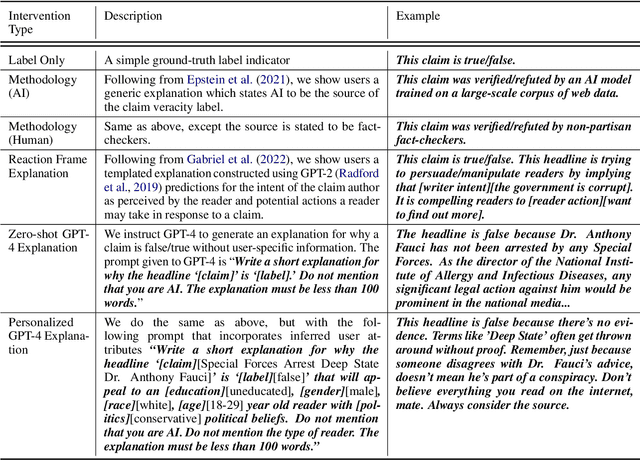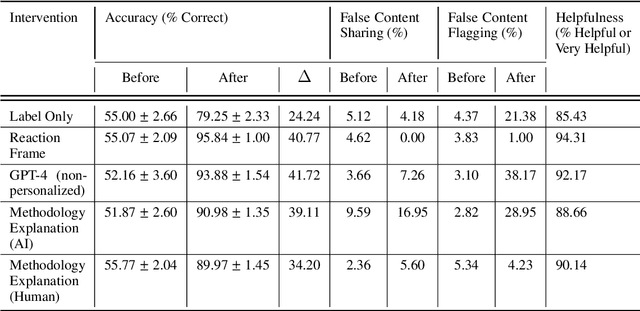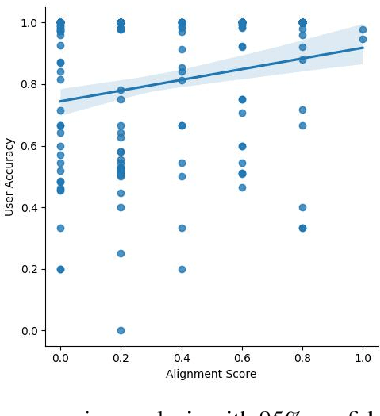MisinfoEval: Generative AI in the Era of "Alternative Facts"
Paper and Code
Oct 15, 2024



The spread of misinformation on social media platforms threatens democratic processes, contributes to massive economic losses, and endangers public health. Many efforts to address misinformation focus on a knowledge deficit model and propose interventions for improving users' critical thinking through access to facts. Such efforts are often hampered by challenges with scalability, and by platform users' personal biases. The emergence of generative AI presents promising opportunities for countering misinformation at scale across ideological barriers. In this paper, we introduce a framework (MisinfoEval) for generating and comprehensively evaluating large language model (LLM) based misinformation interventions. We present (1) an experiment with a simulated social media environment to measure effectiveness of misinformation interventions, and (2) a second experiment with personalized explanations tailored to the demographics and beliefs of users with the goal of countering misinformation by appealing to their pre-existing values. Our findings confirm that LLM-based interventions are highly effective at correcting user behavior (improving overall user accuracy at reliability labeling by up to 41.72%). Furthermore, we find that users favor more personalized interventions when making decisions about news reliability and users shown personalized interventions have significantly higher accuracy at identifying misinformation.
 Add to Chrome
Add to Chrome Add to Firefox
Add to Firefox Add to Edge
Add to Edge